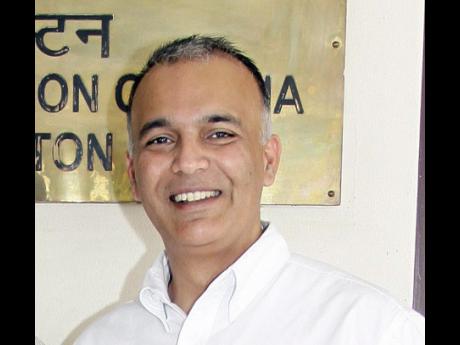The world is a classroom - Japanese volunteers plant seeds for Jamaican students to reap rewards
It is a labour of love, expanding the horizons of learning, taking the flight of imagination beyond the confines of the four walls, yet being on the terra firma much.
Three young volunteers of the Japan International Cooperation Agency (JICA) – Takumi Shimizu, Kenichi Mikami and Shima Sato – went about encouraging students and youngsters to grow food and practice farming.
“I wanted them (the students) to realise the importance of growing their own food and wanted them to embrace farming,” said Sato, who worked with Manchester 4H Clubs, and worked with schools across the parish to encourage students embrace farming practices.
“I want them not be dependent on anyone for food,” she added.
These three young volunteers said that they found it surprising that students in Jamaica did not know about agriculture.
Farming and agriculture practices are taught in schools across Japan, working in the school gardens – encouraging them to grow what they eat and embrace sustainable living from an early age.
Closer to home, in the United States, one of the key legacies of First Lady Michelle Obama is The Who Farm (White House organic farm).
Mrs. Obama, over the years, encouraged schools to develop kitchen gardens, get the children involved in process of ‘farm to table’. In the wider context she has championed the cause of sustainable local agriculture, national farm policy, school gardens and, childhood nutrition and health.
“Farming is important,” said Shimizu, who worked in Portland. “People should know where is the food that they are eating coming from.
“This practice is also important to boost employment,” he added.
The volunteers said that they had to, initially, get used to the pace of life and the lifestyle in Jamaica – the fact that the students were not exposed to farming, was challenging. Plans were drawn and laid down for execution.
“The results were encouraging,” said Sato. “The students were very enthusiastic and quickly learnt the techniques.”
She, along with her colleagues at 4H developed a manual to develop school farming to grow vegetables.
“We did container gardening,” she informed.
Sato encouraged the use of PET bottles to plant and transport saplings, while in rocky terrains, old tyres were used to make a bed and grow sweet pepper, tomato, scallion, carrot, cucumber, scotch bonnet pepper and potatoes.
The students found the bliss in getting their hands dirty in the soil, and have the gratification to enjoy seeing the seeds of their hard work grow into fruits of their labour. These baby steps, could go a long way in addressing the dependency on food import – in 2011 CARICOM’s food import bill stood at US$4.25 billion.
Mikami’s journey in Jamaica was encased in oodles of sweetness – he was assigned to Hanover Educational Institute in Lucea, Hanover, which provides education for dropouts, slow learners, and underachievers.
He researched methodologies sustainable revenue generation for the institution, and he found the answer in nature.
“I saw the potential in developing bee farming as a great opportunity to earn revenue for the school,” Mikami said, in the space of his two years, he managed to, with the assistance of the local bee farmers, to develop bee farming and honey making.
“I did not know anything about bee farming or honey making, but the abundance of flora in that place made me think about the possibilities, and I came up with this idea,” he said.
The school is currently producing honey to sell to locally, and plans are afloat to expand the sales commercially.
“The last work which I did,” informed Shimizu, “was to create a green house, which would help to stop the roots of the saplings to rot, as Portland is a rainy area.”
The three departed for Japan last week, leaving behind, what they hope, are critical tools for sustainable living, helped broaden the vision of the students, and carry back fond memories.
“I was happy to see the students happy and enjoyed every moment in the gardens,” said Sato. “I will miss them (her students) and Jamaica.”



